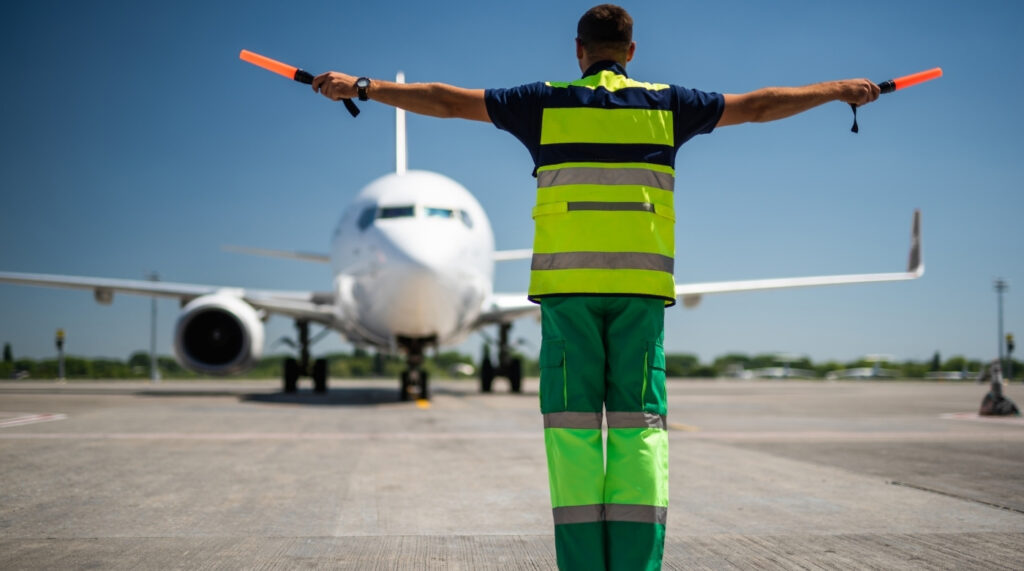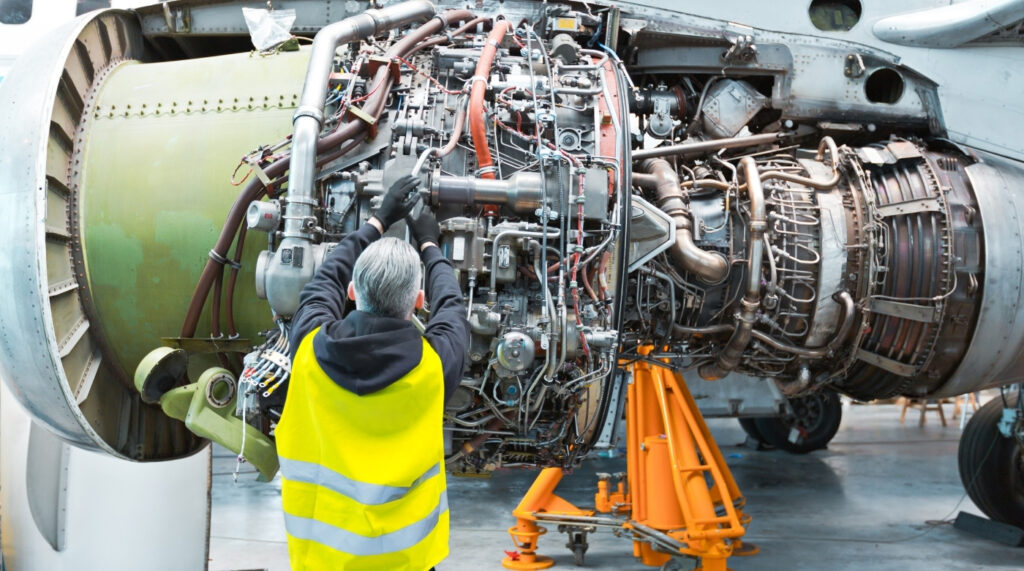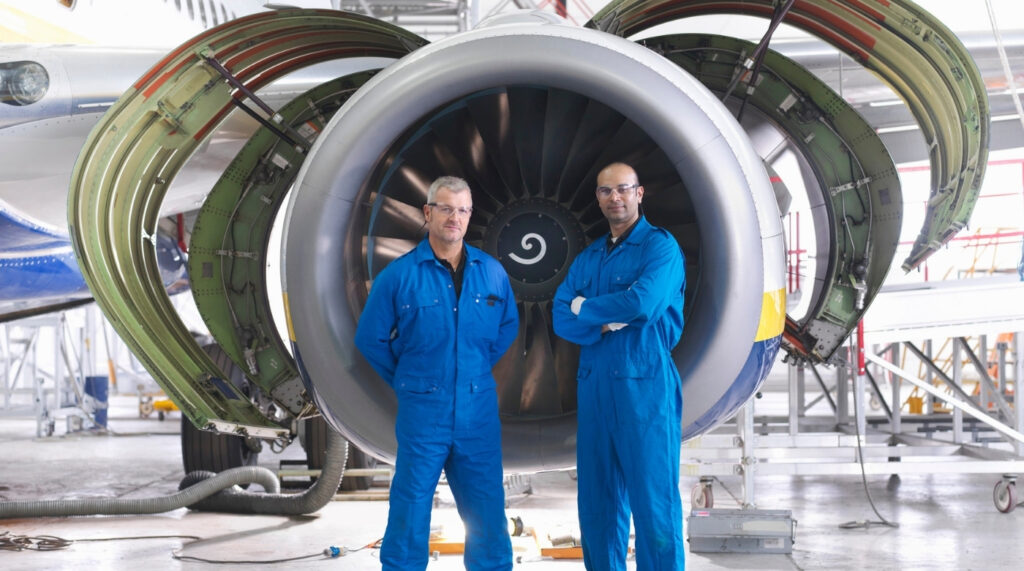Aviation Safety is the cornerstone of modern air travel, ensuring that every take-off and landing happens within the highest standards of protection. Behind the industry’s reputation for innovation, speed, and global connectivity lies this critical foundation. Without robust safety frameworks, effective Human Factors management, high-quality Safety Training, and smooth Airport Operations, the aviation sector as we know it would not be possible.
The career paths that revolve around aviation safety are among the most rewarding in the transport and engineering sectors. They combine technical expertise with responsibility, offering opportunities for professionals to influence the protection of millions of lives. This guide explores the career opportunities within aviation safety, the qualifications needed, salaries, progression pathways, and future outlook.

Why Aviation Safety Matters
Air travel remains one of the safest modes of transportation in the world, but it is only safe because of the dedication of countless professionals. Global aviation statistics consistently demonstrate accident rates of less than one in several million flights. While that figure is reassuring, it reflects not luck but relentless work across every aspect of the industry.
Professionals involved in Aviation Safety carry out tasks that reduce risks, investigate incidents, and ensure compliance with international standards. From Airport Operations staff who monitor ground safety to specialists in Human Factors who address fatigue, stress, and communication breakdowns, each plays a role in preventing accidents before they occur. Safety is not a single responsibility; it is a layered system of training, monitoring, and continuous improvement.
The Expanding Role of Human Factors
The field of Human Factors has transformed aviation safety. Research shows that up to 80% of aviation accidents are linked not to mechanical failure but to human error. That statistic underlines the importance of understanding the way humans interact with technology, environments, and each other.
Professionals in this field investigate how fatigue impacts pilots, how communication breakdowns affect cabin crews, and how decision-making is shaped under pressure. Their work is applied not only in cockpits but across Airport Operations, air traffic control centres, and maintenance facilities. Addressing human factors does not mean eliminating human involvement; rather, it means designing systems and Safety Training that support human performance and minimise risk.
Aviation Safety Careers in Context
The aviation sector offers a wide spectrum of careers dedicated to safety. These include safety officers in Airport Operations, airworthiness engineers, flight safety investigators, training specialists, and human factors consultants.
A professional focusing on Safety Training might design simulator programmes for pilots, ensuring they can handle emergencies from engine failures to adverse weather conditions. Another career path could involve auditing airports, reviewing everything from fire safety readiness to baggage handling procedures. Some individuals become consultants in Human Factors, advising airlines on best practices for crew scheduling, cockpit design, or workload management.
All of these roles share a single goal: making air travel safer for passengers, crews, and communities.
Qualifications for Aviation Safety Careers
Since qualifications are a cornerstone of aviation careers, this section remains in list format. Each pathway requires a different level of expertise, though common themes include safety knowledge, technical training, and strong communication skills.
- Entry-Level Qualifications: Diplomas or vocational certificates in aviation operations, health and safety, or transport management.
- Degree-Level Qualifications: Bachelor’s degrees in aviation management, aerospace engineering, safety management, or human factors psychology.
- Postgraduate Qualifications: Master’s programmes in aviation safety, air transport management, or human factors; specialist diplomas in accident investigation or risk management; doctorates for academic and research-focused careers.
Salary Expectations
Aviation safety careers provide stability and strong financial prospects. Salaries vary depending on the role, level of experience, and sector (airlines, airports, regulatory authorities, or private consultancy).
| Role | Starting Salary | Experienced Salary | Senior Salary |
|---|---|---|---|
| Airport Safety Officer | £24,000 | £32,000 | £42,000+ |
| Aviation Safety Investigator | £30,000 | £45,000 | £65,000+ |
| Human Factors Specialist | £32,000 | £50,000 | £70,000+ |
| Safety Training Instructor | £28,000 | £40,000 | £55,000+ |
| Airworthiness Engineer | £35,000 | £55,000 | £80,000+ |
| Airport Operations Manager | £40,000 | £60,000 | £90,000+ |
Professionals in consultancy or private training roles often exceed these averages, especially when offering niche expertise in Human Factors or high-level Safety Training.
Skills and Attributes
While qualifications and technical knowledge are essential, success in aviation safety depends equally on personal attributes. Strong analytical skills are critical, particularly for investigators analysing complex incident data. Communication plays a central role, since much of aviation safety is about influencing behaviour and ensuring compliance with rules.
Problem-solving is another key attribute. Whether dealing with issues in Airport Operations or managing a crisis in-flight, professionals must think clearly under pressure. Adaptability is vital too, as aviation is one of the fastest-changing industries, with new technologies, regulations, and challenges constantly emerging.
Specialisations in Aviation Safety
Professionals often specialise within aviation safety depending on their interests. Human Factors specialists may work on crew training and fatigue risk management. Those focusing on Safety Training often design pilot simulators or ground handling courses. Others may pursue expertise in Airport Operations, ensuring security, fire safety, and environmental management are aligned with international standards.
Another pathway lies in accident and incident investigation. Investigators work to identify root causes of accidents, often publishing findings that shape future safety protocols worldwide.

Career Roadmap
The aviation industry provides clear routes for progression, though flexibility remains depending on personal goals.
| Career Stage | Training/Qualifications | Roles | Progression Opportunities |
|---|---|---|---|
| Beginner | Vocational certificates/diplomas | Safety Assistant, Operations Trainee | Safety Officer, Trainer |
| Intermediate | Undergraduate degree | Airport Safety Officer, Training Instructor, Investigator | Human Factors Specialist, Operations Manager |
| Advanced | Postgraduate/Doctorate | Consultant, Senior Investigator, Airworthiness Engineer | Senior Management, Director, Academic Leadership |
Many professionals begin in ground operations before moving into management or consultancy. Others start with an engineering or psychology degree and enter directly into specialised safety roles.
Statistics Driving the Industry
The aviation industry is underpinned by data. Globally, the number of air passengers has more than doubled in the past two decades, reaching billions annually. With such growth, the role of Aviation Safety becomes even more critical.
Industry reports indicate that accident rates have decreased significantly over the past 30 years, even as traffic has increased. This improvement is largely attributed to advancements in Safety Training, better understanding of Human Factors, and improvements in Airport Operations.
At the same time, demand for aviation safety professionals is projected to grow by at least 10–15% over the next decade. The rise in cargo flights, expansion of international travel hubs, and increasing environmental and security regulations all contribute to the need for skilled specialists.
Work Environments
Aviation safety professionals work across diverse environments. Some are based in control towers or airport operations centres, ensuring every part of ground handling meets safety standards. Others spend their days in simulators or classrooms, providing Safety Training to pilots and ground staff. Investigators may travel internationally, working on-site at accident investigations.
Human factors specialists often divide their time between offices, training facilities, and research labs, collaborating with engineers and psychologists to improve performance and safety culture. The variety of work environments ensures that careers in aviation safety remain dynamic and engaging.
The Future of Aviation Safety
The outlook for careers in aviation safety is positive. Emerging technologies such as unmanned aerial vehicles, artificial intelligence, and biometric security create new challenges and opportunities. Professionals who can integrate Human Factors knowledge with technology are especially valued.
Environmental concerns also play a growing role. Safety is no longer only about preventing accidents but also ensuring sustainable Airport Operations, where energy efficiency, emissions control, and wildlife management are becoming part of the safety conversation.
Moreover, the increasing use of virtual platforms for Safety Training allows professionals to reach broader audiences, improve cost-efficiency, and simulate complex scenarios that are impossible to replicate in real life.
Final Thoughts
A career in Aviation Safety offers the chance to combine technical expertise with responsibility for protecting lives. It provides diverse opportunities, from working in Airport Operations and conducting Safety Training to specialising in Human Factors and investigating accidents. The field requires dedication and ongoing professional development, but it rewards individuals with financial stability, global opportunities, and the knowledge that their work makes a direct impact on the safety of millions of passengers every day.
As aviation continues to expand, the demand for skilled safety professionals will only grow. Choosing this pathway means not just building a career but also contributing to the future of safe, sustainable, and efficient global air travel.

